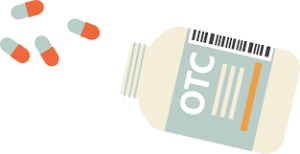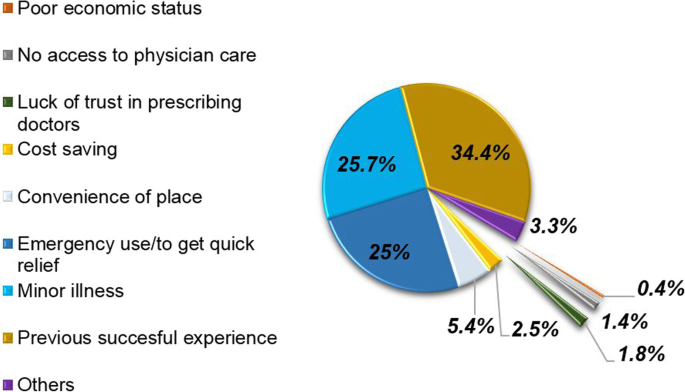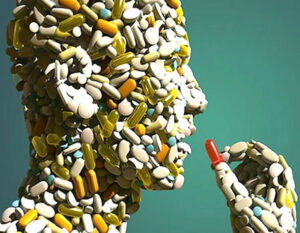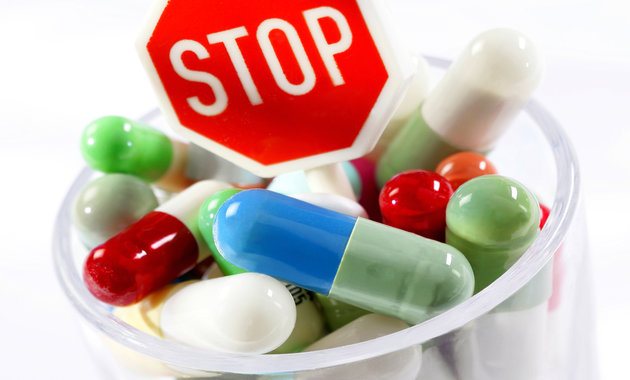In this guide, we will discuss all aspects of self-medication so that you can make informed decisions about how to treat your symptoms. We will cover the different types of self-medication, the signs that someone is self-medicating, and the dangers of self-medication. We will also provide resources for further reading and help if you need them.
Contents
- 1 Understanding Self-medication
- 2 Evaluating Self-medication
- 3 Estimating Dangers of Self-medication
- 4 Recognizing Substance Abuse Problem
- 5 Tracing Patterns of Self-medication
- 6 Coping With Self-medication
- 7 Talking To a Professional
- 8 Practicing Self-medication Safely
- 9 Helping Someone Who’s Self Medicating
- 10 Hearing From Experts
- 11 Conclusion
- 12 A Word From Therapy Mantra
Understanding Self-medication

Self-medication is the use of drugs or alcohol to treat physical or emotional symptoms. It can be a dangerous practice, and it’s important to know how to do it safely. There are different types of self-medication, and each one has its own set of risks.
Types of Self-medication
There are three main types of self-medication: physical, emotional, and cognitive.
- Physical self-medication is the use of drugs or alcohol to treat physical symptoms. This type of self-medication is the most common, and it can be very dangerous.
- Emotional self-medication is the use of drugs or alcohol to deal with emotional issues. This type of self-medication can be just as dangerous as physical self-medication.
- Cognitive self-medication is the use of drugs or alcohol to deal with mental health issues. This type of self-medication is the least common, but it can also be very dangerous.
Signs of Self-medication
There are several signs that someone is self-medicating. Here are some of the most common ones:
- Taking more drugs or alcohol than usual
- Using drugs or alcohol to escape from problems
- Feeling like you can’t control your drug or alcohol use
- Feeling like you have to drink or take drugs to feel normal
- Taking drugs or alcohol to relieve physical or emotional symptoms
Evaluating Self-medication
Before you decide to self-medicate, it’s important to evaluate your symptoms. Here are some questions to ask yourself. For instance, what are the:
- risks of self-medicating?
- risks of not self-medicating?
- symptoms I’m trying to treat?
- Are there any other treatments that could help me?
Why People Self-medicate

There are many reasons why people might choose to self-medicate. Here are some of the most common ones:
- Don’t have access to medical care
- Can’t afford medication or medical treatment
- Afraid of getting addicted to prescription drugs
- Don’t want to take medication that has side effects
- Don’t want to bother their doctor with minor problems
Estimating Dangers of Self-medication
Self-medication can be dangerous for several reasons. Here are some of the most common ones. For instance:
You may not be:
- Taking the right dose.
- Treating the right condition.
- Aware of the side effects of the drugs or alcohol you’re taking.
You may be:
- Putting your health at risk.
- Addicted to drugs or alcohol.
- Taking too much of a drug or alcohol.
- Mixing drugs or alcohol with prescription medication.
Antibiotic Resistance
One of the biggest dangers of self-medication is antibiotic resistance. When you take antibiotics without a prescription, you increase the risk that bacteria will become resistant to them. This means that the next time you need antibiotics, they may not work.
Research On Antibiotic Resistance
In a study of antibiotic resistance, researchers found that:
- Self-medication was the main source of antibiotics for people in the study.
- People who self-medicated were more likely to have bacteria that were resistant to antibiotics.
- The use of antibiotics without a prescription is a major contributor to antibiotic resistance.
Recognizing Substance Abuse Problem
There are two types of substance abuse problems: alcohol and drug abuse.
- Alcohol abuse is when you drink too much alcohol, and it can lead to serious health problems.
- Drug abuse is when you take drugs that are not prescribed for you, and it can also lead to serious health problems.
Cues To Recognize Substance Abuse
It can be difficult to recognize a substance abuse problem, especially if the person is trying to hide it. There are some cues to look for, however:
- Spending too much money on drugs or alcohol
- Having legal problems because of drug or alcohol use
- Neglecting responsibilities in favor of drug or alcohol use
- Experiencing health problems because of drug or alcohol use
- Having problems at work or school because of drug or alcohol use
- Having problems with family or friends because of drug or alcohol use
Tracing Patterns of Self-medication
It can be helpful to trace the patterns of self-medication in your life. This can help you understand why you’re using drugs or alcohol to treat your symptoms. It can also help you find other ways to cope with those symptoms.
Here are some questions to ask yourself:
- What emotions am I trying to avoid?
- When do I usually drink or take drugs?
- How do drugs or alcohol make me feel?
- What physical symptoms am I trying to treat?
Coping With Self-medication
Self-medication can be difficult to cope with, especially if it has become a habit. It is important to have healthy coping mechanisms in place to deal with the temptation to self-medicate.
Self-help Tips
Some self-help tips include:
- Identify your triggers. When you know what causes you to want to self-medicate, you can work to avoid or deal with those triggers.
- Stay busy. When you have something to focus on, it can help take your mind off of self-medicating.
- Connect with others. Spending time with friends and family can help reduce feelings of loneliness or isolation that may lead to self-medication.
- Seek professional help. If you are struggling to cope with self-medication, it may be helpful to seek out professional counseling or therapy.
Self-help Tools
Self-help tools can also be useful in coping with self-medication. Some examples include:
- A stress ball or other stress-relief tool.
- A journal for tracking your moods and thoughts.
- A support group for people struggling with addiction.
Talking To a Professional
If you’re struggling with self-medication, it’s important to talk to a professional. A therapist can help you understand why you’re self-medicating and develop strategies to cope with your symptoms. They can also provide support and guidance as you work through your addiction.
Many different types of therapy can be helpful for self-medicating people. Some of the most common therapies include:
- Cognitive-behavioral therapy (CBT): CBT is a type of therapy that helps you change the way you think and behave. It can be helpful for people who are self-medicating because it can help you learn how to deal with your emotions healthily.
- Dialectical behavior therapy (DBT): DBT is a type of therapy that helps you manage your emotions. It can be helpful for people who are self-medicating because it can teach you how to deal with your feelings healthily.
- Interpersonal therapy (IPT): IPT is a type of therapy that helps you develop better relationships with others. It can be helpful for people who are self-medicating because it can help them learn how to connect with others healthily.
- Family therapy: Family therapy is a type of therapy that helps you improve your relationships with your family members. It can be helpful for people who are self-medicating because it can help them learn how to connect with their families healthily.
If you’re not sure where to start, your therapist can help you find the right treatment for you.
Practicing Self-medication Safely
There are some things you can do to practice self-medication safely. Here are a few tips:
- Talk to your doctor about the risks and benefits of self-medicating.
- Make sure you’re taking the right dose of medication.
- Never mix drugs or alcohol with prescription medication.
- Be aware of the side effects of the drugs or alcohol you’re taking.
- Make sure you have a support system in place if you decide to self-medicate.
Helping Someone Who’s Self Medicating
It can be difficult to watch someone you care about self-medicate. You may feel helpless and unsure of how to help. The most important thing is to talk to the person and offer support.
Here are some tips for helping someone who’s self-medicating:
- Talk to the person about your concerns. Let them know that you’re worried and want to help.
- Be supportive and understanding. Let the person know that you’re there for them.
- Ask the person about their symptoms and how they’re feeling.
- Encourage the person to seek professional help.
- Offer practical support, such as driving them to appointments or helping them get medication.
- Stay positive and supportive. Remember that the person is trying to cope in the best way they know-how.
If you’re struggling with self-medication, it’s important to get help. Talk to your doctor or therapist about your concerns. There are also many resources available online and in print.
Hearing From Experts

If you’re curious about self-medication, it’s important to hear from experts in the field. Here are some quotes from people who know a lot about the topic.
“Many people don’t get the help they need because they’re afraid of addiction. They should be more afraid of the disease itself.”
– Dr. Drew Pinsky, an addiction specialist
“Self-medication is a way to soothe emotional pain and distress.”
– Dr. Gregory Skipper, an addiction specialist
“People use self-medication as a way to avoid their emotions.”
– Dr. Marsha Linehan, psychologist, and creator of dialectical behavior therapy
Case Study
Here’s a case study about a woman who self-medicated to deal with her mental health problems.
Mary was dealing with a lot of stress in her life. She was working long hours at a job she hated and her relationship with her boyfriend was on the rocks. To cope with the stress, Mary started drinking alcohol every night.
Drinking made her feel relaxed and happy. So she started drinking more and more. Eventually, Mary’s drinking got out of control, and she had to quit her job and break up with her boyfriend. She realized she needed help and went to rehab.
Resources
If you’re looking for more information on self-medication, here are some resources to check out.
- National Institute on Drug Abuse: This website has information on drug and alcohol addiction, including a section on self-medication.
- Alcoholics Anonymous: This website has information on Alcoholics Anonymous, a program for people with alcohol addiction.
- Narcotics Anonymous: This website has information on Narcotics Anonymous, a program for people with drug addiction.
Conclusion
Self-medication is a way to cope with emotional distress. While it can be helpful in the short term, it can also be dangerous and lead to addiction. If you think you might be self-medicating, it’s important to talk to a professional. Several therapies can help you deal with self-medication, and there are also resources available if you need help.
A Word From Therapy Mantra
Your mental health — Your psychological, emotional, and social well-being — has an impact on every aspect of your life. Positive mental health essentially allows you to effectively deal with life’s everyday challenges.
At TherapyMantra, we have a team of therapists who provide affordable online therapy to assist you with issues such as depression, anxiety, stress, workplace Issues, addiction, relationship, OCD, LGBTQ, and PTSD. You can book a free therapy or download our free Android or iOS app.


